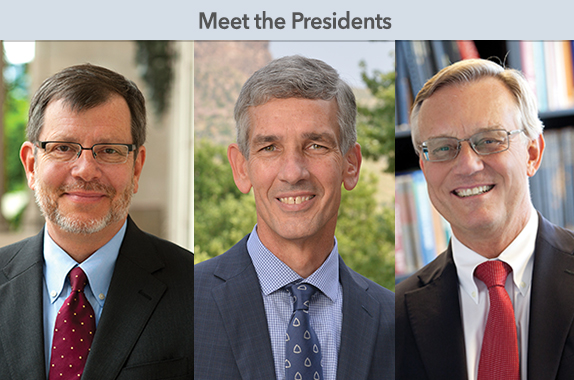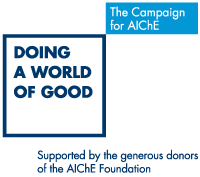University Presidents with degrees in Chemical Engineering will address issues impacting higher education, and in particular, engineering education and professions. The intent is to inform and stimulate a broad audience – academe, industry, and national laboratories – based on the unique perspective of a President.
This session will consist of a series of brief 15-minute presentations by each president followed by a question & answer period for the audience.
Featured speakers:
- John Anderson, Distinguished Professor of Chemical Engineering, Former President, Illinois Institute of Technology
- Paul Johnson, President, Colorado School of Mines
- Eric Kaler, President, University of Minnesota
Presentations:
Challenges to the Partnership between Research and Education
John Anderson, Distinguished Professor of Chemical Engineering, Former President, Illinois Institute of Technology
The current model for a “professor” of engineering at a Carnegie research university assumes the professor is a scholar, teacher, advisor and university citizen. The financial underpinning of this model rests on revenue generation through tuition (teaching credits), research grants and endowment draw to various degrees depending on the institution and its resources. Several factors are challenging this model: resistance to increases in tuition rates, reduced success rates on proposals and more university cost sharing, more demands on teaching at the undergraduate level, federally mandated compliance, and tenure itself. Unless research is more tightly connected to education, it will become more difficult to sustain the “professor” model in its classical sense.
The Next Gen Engineers
Paul Johnson, President, Colorado School of Mines
This is a pivotal moment in time for the engineering workforce. There are demographic gaps, pressures for more rapid innovation and knowledge transfer and acquisition, complex multi-national companies and global economies, desire for a more diverse workforce, and the need to increase the awareness of the impact of engineers on society. We need to excite, attract, retain, and prepare the next generation of engineers to be innovators, entrepreneurs, professional ambassadors, leaders, and to be resilient and opportunistic. We also need to recognize that the potential pool of next-generation engineers views the world through lenses shaped by their personal experiences and learning styles, and that their motivations, professional interests, and career trajectories might be very different from the past. These brief introductory comments will summarize recurring themes and reactions to discussions with industry leaders, late-, mid-, and early-career engineers, legislators, faculty, and students entering the engineering pipeline.
The Changing Face of Public Higher Education
Eric Kaler, President, University of Minnesota
Public higher education is at a crossroads. The dramatic decisions made by states during and soon after the Great Recession drove extraordinary increases in tuition and, in many cases, a spike in student debt. The question before us is how to continue to deliver on our missions of teaching, research and public service in the presence of ongoing budget challenges. Options to be explored included public-private partnerships, educational efficiencies, and a refocusing of priorities, with an emphasis on the STEM fields.


